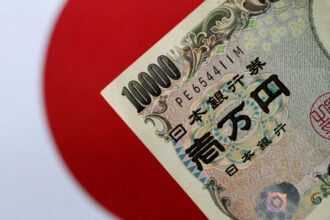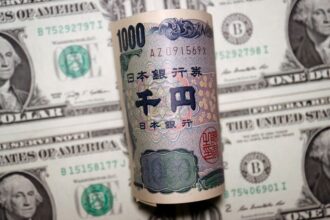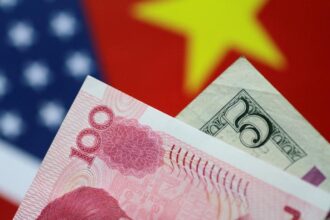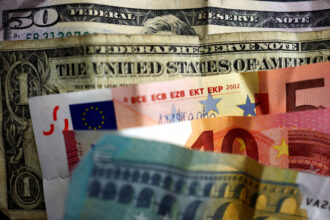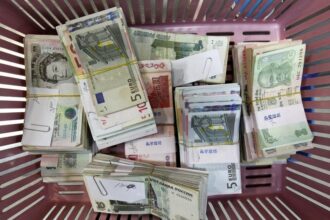By Noe Torres
MEXICO CITY (Reuters) – Mexico’s peso currency has reached its highest value versus the U.S. dollar in seven years, as the president celebrates its strength but analysts warn of harmful side effects on exports and remittances.
The Mexican peso is among the top-performing currencies this year with a 12% surge against the U.S. dollar, after closing last year up about 5%.
The peso’s gains are expected to continue, as money flows keep entering the country attracted by higher yields, which have grown more attractive as a consequence of the central bank’s rate hiking.
But the Mexican currency’s recent strengthening to about 17 pesos per U.S. dollar, from 19.50 pesos per greenback last December, makes Mexican exports more expensive.
“A prolonged appreciation of the super peso could be more harmful than beneficial,” said Guillermo Mateos, analyst at Banco Base, noting it could slowdown exports as they get pricier.
In April, the value of exports fell 2.9% year-on-year.
The value of the peso also impacts the competitiveness of Mexico’s large industrial sector, with unions warning that competition with Asian products gets tougher as the peso gains since imports become relatively cheaper.
Remittances are also being affected, as a weaker dollar translates into fewer pesos when converted, especially in an environment of high inflation.
In fact, Banco Base sees remittances loosing more than 10% of their spending power if the peso-to-dollar exchange rate holds steady.
President Andres Manuel Lopez Obrador has repeatedly referred to the peso’s gains – which he does not control – as an indirect sign his administration’s austerity budget policies. But the populist leader rarely acknowledges the downside of a stronger local currency.
“They’re already talking about the Mexican miracle, the Mexican dream,” he said at a recent press conference, referring to the peso’s ongoing winning streak.
Tourism could also suffer, as the exchange rate hurts travelers who would also get fewer pesos than before, said Jonathan Zuloaga, a Columbus de Mexico analyst.
Mexico’s peso is among the world’s most liquid currencies since the country adopted a free-floating exchange rate in 1994.
Bets for an even stronger peso on the Chicago Mercantile Exchange have grown since March. Last week, positions in favor of the currency gaining climbed to 78,809 contracts, one of the highest amounts since 2020.
Analysts surveyed by Citibanamex see a similar trend, expecting the peso to appreciate to 18.32 pesos per dollar, from 18.70 pesos, by the end of this year.
Read the full article here





